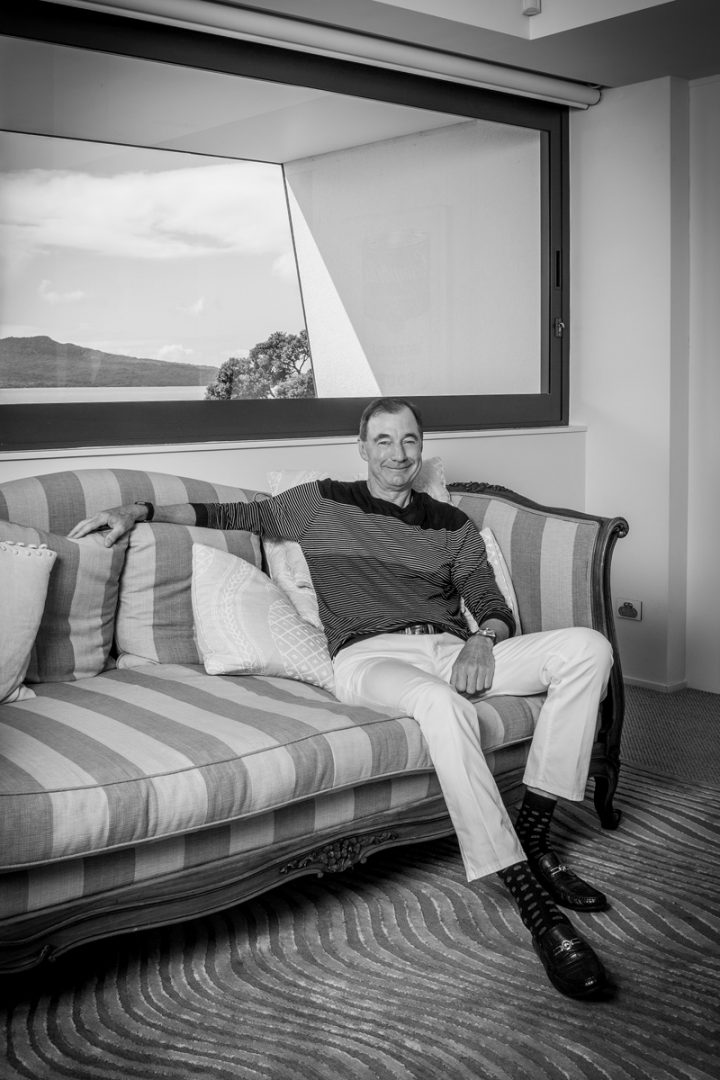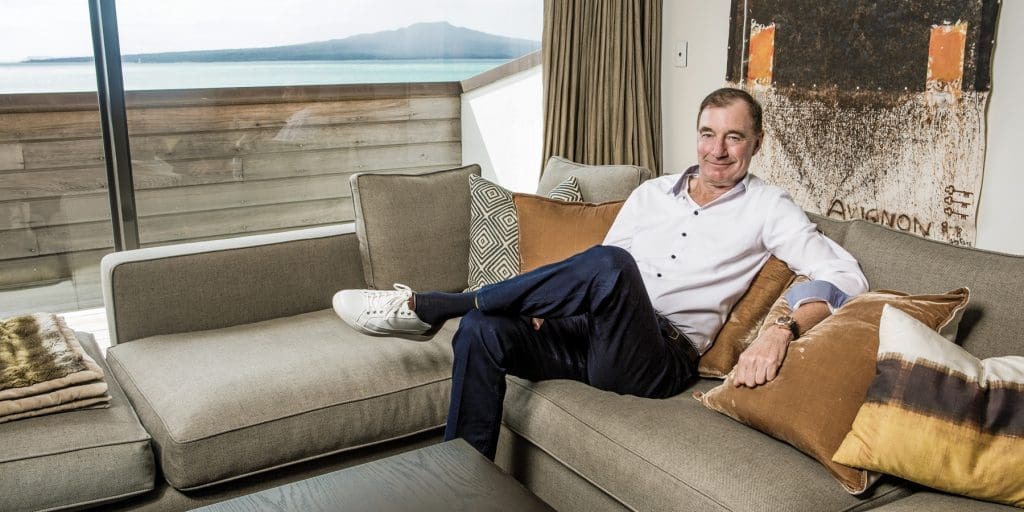Above & Beyond – Building Business Icons with Craig Heatley
From a Foxton Subdivision funded with $200 from his after-school paper round to a mini-golf course in Taupo to Rainbows End, to SKY Television, Craig Heatley is a self-made entrepreneur that has not only created business icons, but has helped shape New Zealand culture. He helped herald in professional rugby, opened our televisions to more content than we had seen before and changed the way that we saw the world at a time before the internet had taken hold.
As if that wasn’t enough for A lifetime, Craig was named EY’s New Zealand Entrepreneur of the year in 2012, was inducted into the World Entrepreneur Hall of Fame in 2013, is the only southern Hemisphere member of the Augusta National golf club and is a pilot with F16 flights under his belt. His journey has been turned into a book by Joanne Black, aptly named, ‘No Limits: How Craig Heatley Became a Top New Zealand Entrepreneur’. A wonderful insight into a man who has achieved so much from very humble beginnings. We talk to Craig about the book, his journey, and where he sees the opportunities of the future.
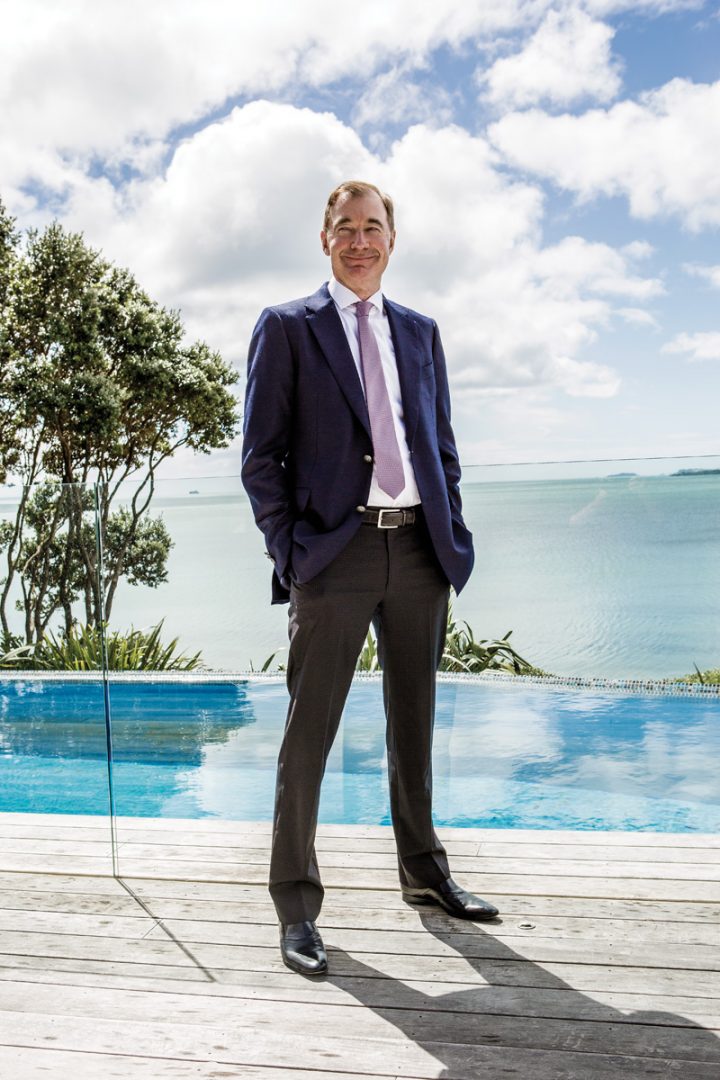
After opening yourself up to a book about your life, does it reframe your journey so far?
No, I don’t think so. I have always been one to not really look at things too much, so in that sense it allowed me to reminisce a bit and go back and think about things that I hadn’t really done before.
She [Joanne Black] also went and spoke to many, many people who had different and interesting recollections, so when I read the book I found it interesting in terms of what other people’s perceptions were.
When you were reading other people’s perspectives of things, were you surprised by anything in particular?
No, not particularly surprised, I was interested. Life’s a journey and I’m sure you will think differently at 40 than you did at 20, and you’ll probably think differently at 60 than you do at 40, in a sense. Circumstances give rise to certain challenges and then circumstances change and our outlooks change.
Did Joanne have to do a lot of work to convince you to open yourself up to this?
I’d been approached a number of times over the years and I’ve always demurred because I didn’t really want to put myself out there again. I’d made a conscious decision about 20 years ago to get off the public treadmill so to speak, but Joanne had written some speeches for me, she had written a lot for John Key. I trusted her, I had a bit of history with her.
And others told me that I should do it because, in part, people that had started my journey were getting old and, if we didn’t do it, it probably never would get done. It was a combination of factors that lead me to say, ‘Okay, let’s do it.’ So that was the genesis of it.
Towards the end of the book John Fellet laments the Tall Poppy Syndrome as something that he hadn’t experienced before in the US and suggested that it was responsible for people like yourself and David Richwhite and Alan Gibbs who had created thousands of jobs packing up and leaving or going underground. Was that a fair comment?
No, no. I didn’t think that way at all. There is a Tall Poppy Syndrome in New Zealand, I’m sure you’ve seen it yourself. It was stronger about 30 years ago; it was probably stronger than that before that. It’s getting less so in my opinion now.
The reason I made the decision I made was a whole combination of things. As a young lad, I wanted to get out of Upper Hutt. I was just very energetic and keen to get ahead, make some money.
That was my idea of creating freedom; make some money because that would give you choice and so on and so forth.
I was very lucky with some of the opportunities that I had; but as a result of that, I unwittingly was running on a treadmill that I wasn’t in control of. I was on a number of boards, I was running part of Sky – Sky was doing well – I had hundreds of people that I was responsible for and life took on a momentum of its own. I had lost more control than I had realised, and it took Mike Robson’s [Independent Newspapers head and Craig’s friend] very sudden death, to sort of shake me to the point of ‘Hang on, that could have been me!’
I just made a decision within a few days to say, ‘Look, I’m going to reassess my life. I want to spend more time with my family and I want to get control again of my time’. I think that the biggest luxury I’ve had this century has been controlling my time. The irony is that I did really well in monetary terms and I met a lot of goals when I was involved with public companies, Rainbow and Sky and so on. So I did phenomenally well. But once I made the decision to get off the treadmill and just take back control of my time and not be running around manically every day, I’ve actually made a lot more money, I’ve had a lot more fun and I’ve had control of my time, and my family became my number one priority. It was absolutely the right decision for me and, as I say, it took Mike’s death to jolt me into that position.
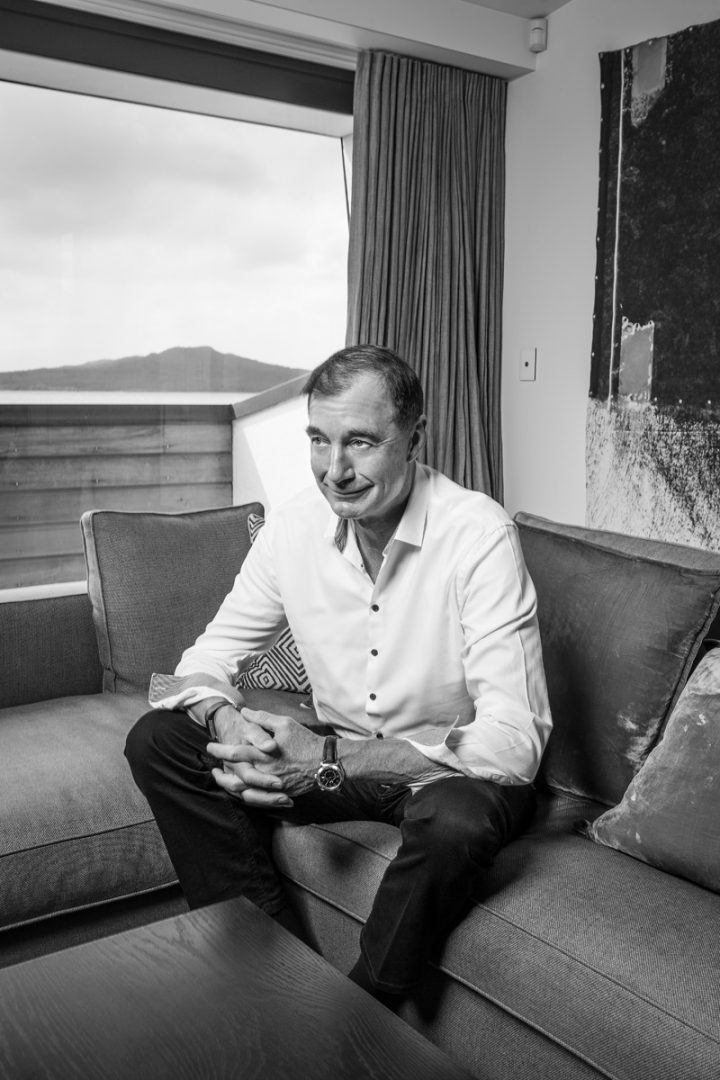
How would you describe that process?
What I was able to do was then see the wood from the trees. When we started Sky, we were doing 18 to 20-hour days, no exaggeration. You don’t have room for anything else, it consumes your whole being.
For several years, Terry Jarvis [Sky Television co-founder] and I were Air New Zealand’s biggest customers. We’d fly to London for a meeting in the morning and fly home again that night, then three days later go to New York, then come back. So, it takes on a life of its own. When I made the decision to stand back and really look at the bigger picture, I was able to see a whole lot of things which I hadn’t had time to see before.
Again, I was probably a bit lucky, but I was there at the end of the boom that started in the late ’80s before the crash and in the late ’90s and then I was able to take advantage of that big correction in the year 2000. I was a believer in things digital and I was able to invest in companies that have done exceedingly well. I don’t think I would have been able to do that if I had been myopically involved in one company day in, day out.
The early days of Sky seemed like such insanely hard graft. If you could have foreseen that, would you have gone down that track?
No, I’ve never been one to dwell on anything. I don’t know how to answer that, because there were so many good things about Sky. I learnt so many things about the challenges too really, so part of who I am now.
I’m not one to say, ‘Oh, wish I hadn’t done that’, because you did, and you did it with the right means at the time and you live with it. I love Sky, I think Sky’s a terrific company. Sky’s got a much better future than a lot of people give it credit for.
How do you reconcile the process of building up something from scratch, making autonomous decisions and making quick decisions, and then as it scales up and more people are involved, having to let a lot of things go?
With something like that, you consider it your own baby. I’m someone who is not that shy about giving an opinion and I tend to want to do things my way, rightly or wrongly. So I’m probably not the person to be running an existing business because I don’t think I’ve got the patience for it.
You’re a builder and an entrepreneur, so I guess there’s a time when you have to let CEOs come in?
Yeah and Nate Smith was a terrific CEO. I didn’t see eye to eye with him on a lot of issues. But you need people with different skill sets.
If you look at TVNZ along the way in terms of management skills, there were some mind-bogglingly silly decisions that worked in your favour during negotiations. What do you put that down to?
I’m happy competing with any government because they tend to be slower in making decisions. If you look back as the taxpayer, TVNZ could have been sold for a billion dollars a couple of decades ago. It wouldn’t be worth anything like that today.
So, have they made mistakes? Yep, but I don’t want to sound like I haven’t made mistakes either because I’ve made plenty. But they did make some calls that I thought were quite strange. Some of them I couldn’t understand at all but they obviously they had their own reasons for it. But in general, governments don’t tend to run successful businesses.
Are you inclined towards more involvement in politics in the future?
No, I’m too old, that’s not me. I’ve done four or five dinners in terms of the launch for the book, then you won’t hear much from me again. I’ll just go back to being under the radar.
How would you describe an average day for you outside of the book launch?
No, such thing as an average day. I’m blessed. The greatest asset that’s in my work process that I’ve got is control of is my time.
I can go and play and golf with my kids. I have kept my business contacts alive without being a slave to any desk. I’ve got interests in the US and elsewhere, I’ve got some wonderful friends and I just think of myself as the luckiest person on the planet.
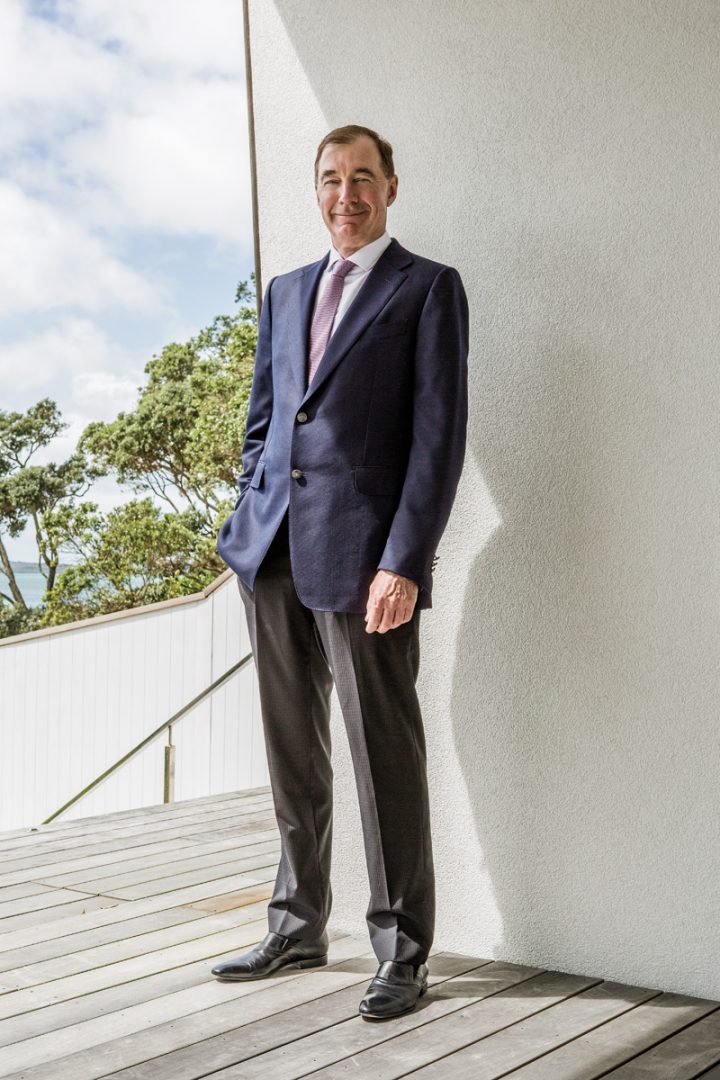
How do you see the current state of New Zealand’s business potential?
We’ve got capital available and, because of the internet and everything else, Kiwi’s can think of opportunities in a worldwide sense now. That wasn’t possible in the ’80s. We had import controls, we had a fixed exchange rate, if you wanted to take out more than $4,000 from New Zealand you needed a permit from the Reserve Bank. Interest rates were nuts.
I think back to the US money we borrowed, it was at 14 or 15% interest per annum. It was crazy! So, the world has changed a lot in that 30 years; opportunity is better, there’s more money, and the market size is potentially bigger. That’s the good news.
The bad news is that competition has never been greater. So you need scale and you need to get going and you need to establish a bridge and a moat more quickly than you used to.
If you were 20 now, what do you think you’d get it into?
Knowing what I know now, I would look to those industries where there is a rise in tide. The industries that grow over and above normal growth. I would point to industries like organics. Healthy eating is a trend that’s not going to stop, in my opinion, any time soon. So those industries are going to grow.
If you’re talking about internet shopping, that is a permanent, irreversible trend in my view, and it’s only going to get bigger. Biotech is a harder one. If you’re 20, how do you get the biotech? The advances of biotech are crazy and so as a place to invest I look and say, ‘Okay, is that an industry that I think is going to have outsized growth?’ I think there might be in the next 20 or 30 years, stuff that would have been pure science fiction only a decade or two ago.
So, I would say start by focusing on industries that are going to have outsized growth potential and combine that with a worldwide market as opposed to just a New Zealand market.
What’s the best piece of advice you’ve ever been given?
I like Warren Buffett. He didn’t actually personally give me this piece of advice, though I have met him. He said, ‘Rule no. 1: Don’t lose money; Rule no. 2: Never forget rule no. 1.’ I would say that the pain of a loss is a 100 times worse than the pleasure of a gain. And so if you make a bad decision (and we all do), be prepared to cut your losses, be prepared to change your mind.
That’s a difficult thing to do. A lot of people do the opposite and I’ve seen it time and time again. If you have a major move in the share market, people thend to sell the shares that have gone great and hold on to the ones that have gone down the most. When in fact they probably should have done the opposite. That is human nature, it’s psychology, it’s all those things.
So I’ve tried to be conscious of those sorts of things, and some of the best investors I’ve ever met ride their winners and are quite brutal with their losses. I’ve tried to follow that as much as I can and accept that I’ve had a fair share of losses too. But, as I said earlier, you learn more from losses, don’t you?
